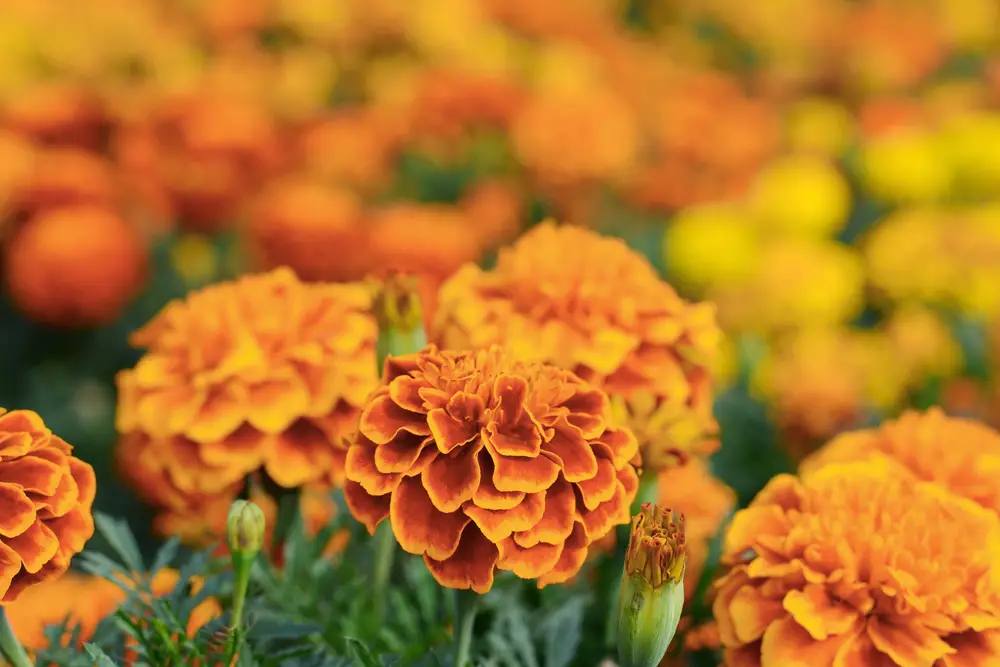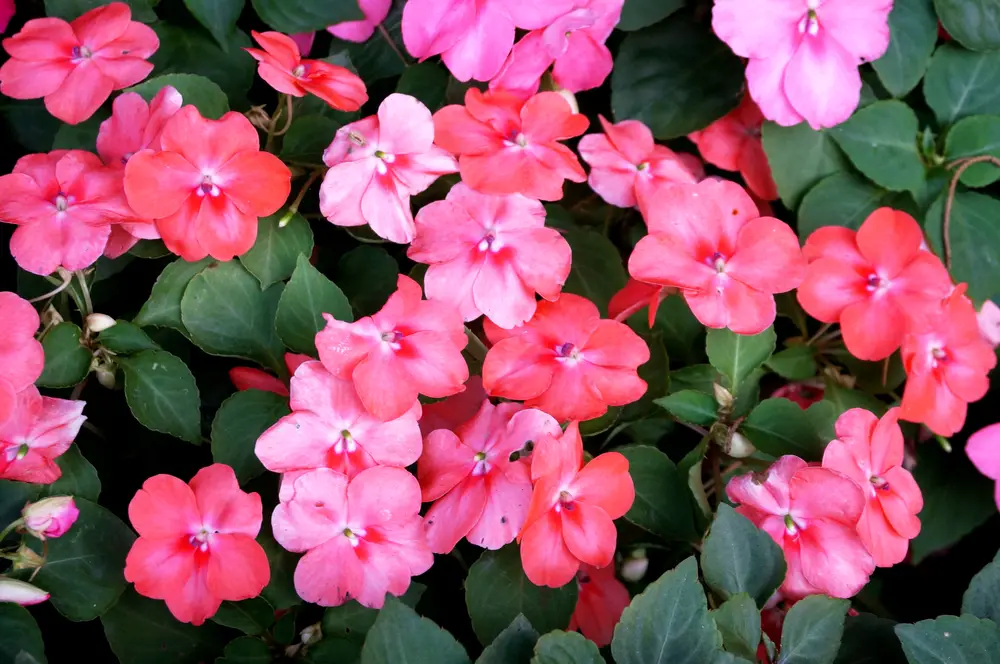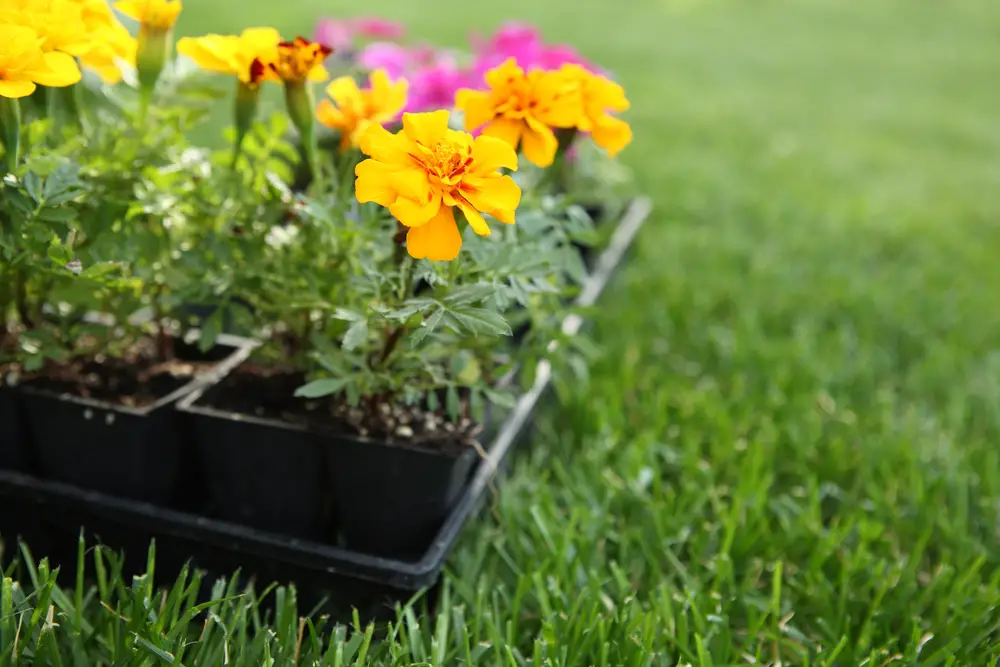Summary
When it comes to annual plants pros and cons, the pros are the following:
- They’re long-lasting flowers
- Unique colors and textures
- They’re easy to care for
- You can plant them in many locations
- They let you try plants out
- They’re immediate and consistent
- Annuals are great for events
Annual plants’ cons are the following:
- They have short lifespans
- Replacing them can be costly
- Weather conditions affect them
- Some annual plants are pet-friendly, and some aren’t
- Some annual plants are vulnerable to insects and fungi
Getting an annual plant is ultimately up to you. They have plenty of good things about them, but they’re not perfect. If they suit your situation, we say go for it!
There’s a lot to love about annual plants, but there’s also a lot to take into consideration. So, if you’re considering an annual plant, here’s an in-depth look at all their pros and cons!
Annual Plants Pros And Cons
Annual plants (annuals) have many different pros and cons. Knowing annual plants pros and cons helps you make an informed choice about whether or not you want an annual plant and which one you’d like.
To help you make that choice, let’s start with an annual plant’s pros.
Annual Plants Pros

Long-Lasting Flowers
Many types of annual flowers have extended blooming periods with lots of flowers. Since annual plants live and die within one year, they need these features to ensure their continued survival.
That’s good news for you since that means you’ll get to take advantage of that extended blooming period as well.
Unique Colors And Textures
Annual plants are more visually striking than perennial plants. Despite their seasonal nature, growers don’t hesitate to cultivate plants from various regions, as annuals are among the most breathtaking plants one can have.
They’re Easy To Care For
Annual plants require less planning and care than perennial plants. Unlike perennial herbs or shrubs, which require thinking about their growth and constant pruning or fertilizing, you can largely leave annual plants alone until they die in winter.
You Can Plant Them In Many Locations
You can plant annuals in pots or hanging baskets on your porch, balcony, or indoor rooms. They complement any site, whether next to a resting area, interlock pool, or in the corner of your room.
I like using annual plants for outdoor pots or artificial environments because they look very pretty and can make the whole space beautiful.
Perennial plants are meant to survive many years, but in certain artificial conditions, their chances of survival can decrease dramatically.
They Let You Try Plants Out
An important part of gardening is experimenting with different plants. Annual plants let you do this without worry. They make the perfect plants to practice with or check out since they only last for a year.
They’re Immediate And Consistent
One of the main differences between annual, perennial, and biennial plants is that annual plants give you an immediate experience that perennial and biennial plants don’t. Their lifespans are short, so everything happens quickly.
They’re also consistent. While perennial or biennial plants may change over time, annual plants remain consistent in their appearance and care.
This doesn’t mean annual plants are better than biennial or perennial plants, though. It just means they’re different.
Annuals Are Great For Events
Annual plants are the best choice when time is essential. They grow and bloom early and are beautiful, meaning they’re perfect for events such as presentations, celebrations, anniversaries, parties, and more.
Annual Plants Cons

They Have Short Lifespans
You must replace annual plants every winter or spring as they have a lifespan of only one year. Digging them in and digging them out can be a time-consuming task. Many gardeners opt for perennial plants for less upkeep in the long run instead of annuals.
Replacing Them Can Be Costly
Despite their beauty and easy care, the expense of purchasing annuals can be overwhelming, especially if you maintain outdoor pot landscapes.
It is worth considering adding perennials to your garden to ensure your landscape remains cost-effective in the long run.
Weather Conditions Affect Them
Certain seasons, like early spring or late summer, can threaten annual plants more than shrubs, biennials, or perennials. This happens due to extreme weather conditions that may arise during these times. Annual plants require a more suitable environment to thrive and may be more susceptible to environmental damage.
Some Annual Plants Are Pet-Friendly, And Some Aren’t
Some annual plants are pet-friendly, and some are not. If you have dogs or cats, research if your plants will affect them.
Some pet-friendly annual plants are:
- Camelias
- Impatiens
- Marigolds
- Nasturtium
- Pansies
- Sunflowers
And some toxic annual plants for pets are:
- Amaryllis
- Begonia
- Coleus
- Geraniums
- Kalanchoe
- Tulips
Some Annual Plants Are Vulnerable To Insects And Fungi
Annual plants can be vulnerable to fungi and insects, so monitor your plants periodically and be proactive.
Impatiens are very commonly affected by the fungus powdery mildew. The main reason for this happening is that gardeners often water the plant’s foliage constantly.
Also, impatiens are typically shade-loving plants, an environment in which molds and fungi will thrive. Help avoid fungal diseases by not watering the leaves of your plants.
Insects can come to nearly all types of plants.
I find lilies (Lilium) very commonly affected by aphids, mites, and other small animals.
A natural solution to avoid aphids and other insects is to plant repellent plants. Geraniums deter aphids and can minimize their impact on your garden.
Should You Get An Annual Plant?
Annual plants are ideal for many gardeners. They are popular among novice and seasoned plant lovers for their beauty and appeal. These plants provide a striking and stunning contrast to your garden, whether it has a natural, contemporary, or traditional vibe.
However, keep in mind they will only last for one year, so you would have to get another annual, a biennial, or a perennial to replace them the following year.
Additional Things To Know About Annual Plants
When To Buy Or Plant An Annual Plant
Spring is the best time to buy or plant annuals, specifically in April or May. It’s better to plant them earlier so you can enjoy them for a longer time. Annuals are popular, so you might have fewer options if you wait.
Annual Plant Limitations
By definition, annual plants will be with you for a year. They do not handle cold weather or dramatic weather conditions and will suffer if you don’t protect them.
It is important to note annual plants are smaller than the trees and shrubs commonly found in your neighborhood. Despite their more extended blooming periods, most annuals eventually lose their vibrant flowers and color before the year comes to an end.
Outdoor Annual Plants Considerations
Outdoor plants in full sunlight need more water. To save water, you can use mulch. Mulch saves you watering time and reduces the weeds in your garden.
Mulch offers a barrier between the air and the ground. It keeps water in the soil for an extended period because it slows. Evaporation of the water keeps the ground cooler. But also, mulch minimizes weeds’ spread and growth by covering the ground from the sun; by covering the soil, the new seeds of weeds cannot germinate.
If you have outdoor pots, think about possible adverse environmental conditions. Prepare your pots during the second half of May, when the chances of frost are minimal. If your plants become too heavy, consider putting down extra soil or gravel to prevent your plants from tipping over.
Indoor Annual Plants Considerations
Indoor annual plants usually require less care than outdoor ones. Nonetheless, consider having a saucer under your plant’s liner to avoid getting your floor wet. Place your plant where there is some air. Living rooms and kitchens are better places than close basements and cellars, for example.

